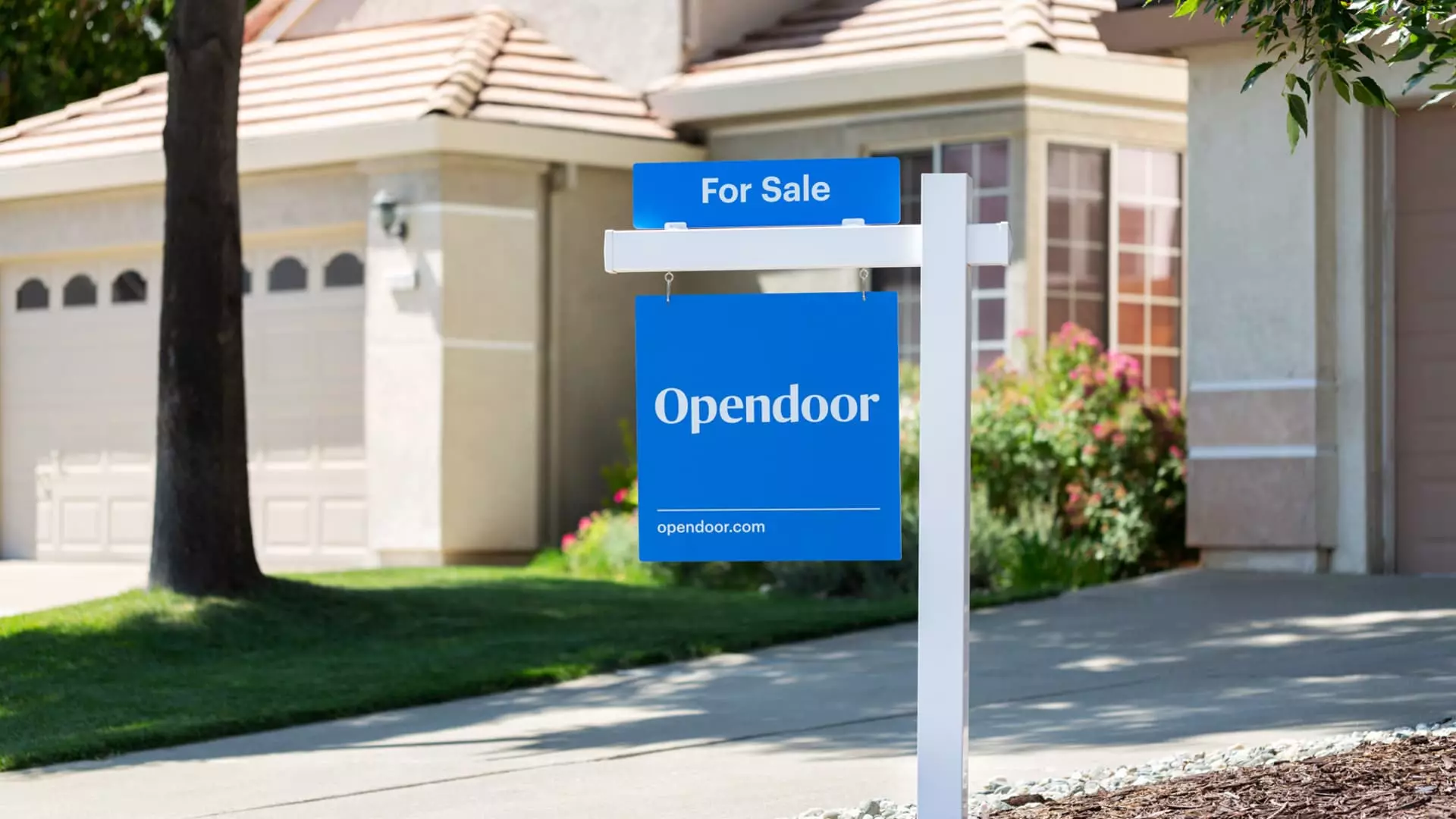In recent weeks, the meteoric rise of Opendoor Technologies exemplifies the dangerous influence of retail traders fueled by online communities like Reddit’s WallStreetBets. What initially appeared to be a fringe movement has morphed into a formidable force capable of disrupting traditional market dynamics. While the enthusiasm might seem innocent or even empowering at first glance, it masks a deeper problem: the collective embrace of speculative fervor that threatens financial stability. Such movements are often driven more by hype and herd mentality than by genuine assessments of a company’s intrinsic value. The rapid escalation of Opendoor’s stock – a mere penny stock months ago – underscores how easily market sentiment can be manipulated when fueled by social media and speculative fervor rather than fundamentals.
The Fiction of Valuation and Reality
What makes Opendoor’s recent rally particularly alarming is the stark disconnect between its share price and its underlying business model. The company, fundamentally, operates in the volatile real estate tech space, but its sky-high valuation — surging over 500% in a matter of weeks — is largely detached from traditional valuation metrics. This disconnect reveals a dangerous tendency among retail investors to assign disproportionate optimism to stocks enmeshed in hype, elevated by speculative trading rather than tangible asset growth or profitability. It’s an illusion of growth that risks collapsing once the hype subsides, leaving unwary investors with staggering losses. This cycle underscores the importance of skepticism in investing, especially when emotions and social media chatter drown out due diligence.
The Role of Wall Street’s Dynamics
The rally in Opendoor isn’t purely consumer-driven; it’s also a product of strategic market mechanics. The surge in trading volume, coupled with a significant percentage of shares held short, indicates a complex tug-of-war between different market players. Short-covering, often perceived as a necessary evil, can amplify upward movements, creating a feedback loop powered by traders chasing quick gains. Options trading further fuels the frenzy, as call options with high open interest magnify price swings. This environment, saturated with speculative instruments and volatile trading behaviors, pumps up stocks like Opendoor in a way that bears little relation to the company’s actual financial health. It’s an unsettling reminder that markets increasingly resemble casinos where luck, sentiment, and momentum often override sound investments.
Market Euphoria or Speculative Bubble?
The broader concern is that these sensational rallies are symptoms of an overheated market fueled by a collective desire for quick riches rather than rational investing. The historical context of SPAC-driven debuts, low-interest rates, and pandemic-induced market euphoria laid the groundwork for this mania. Yet, the current volatility signifies a potential bubble—one in which the narrative has spiraled far beyond the company’s real value or long-term prospects. This exaggerated optimism not only jeopardizes individual investors caught in the frenzy but also undermines the integrity of financial markets meant to reflect underlying economic fundamentals. The question remains whether this is a temporary blip or the harbinger of a more profound correction that exposes the fragility of recent market gains.

